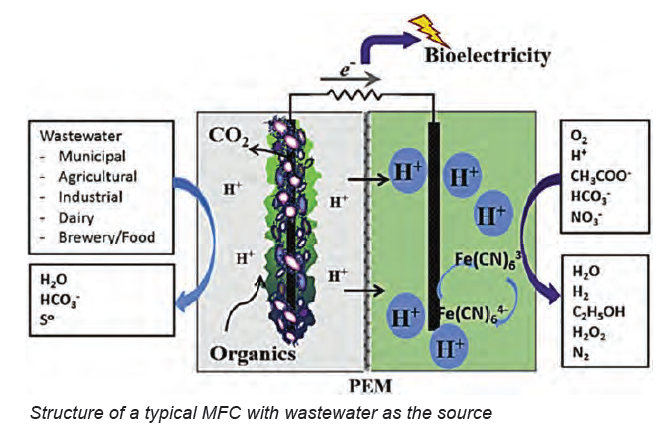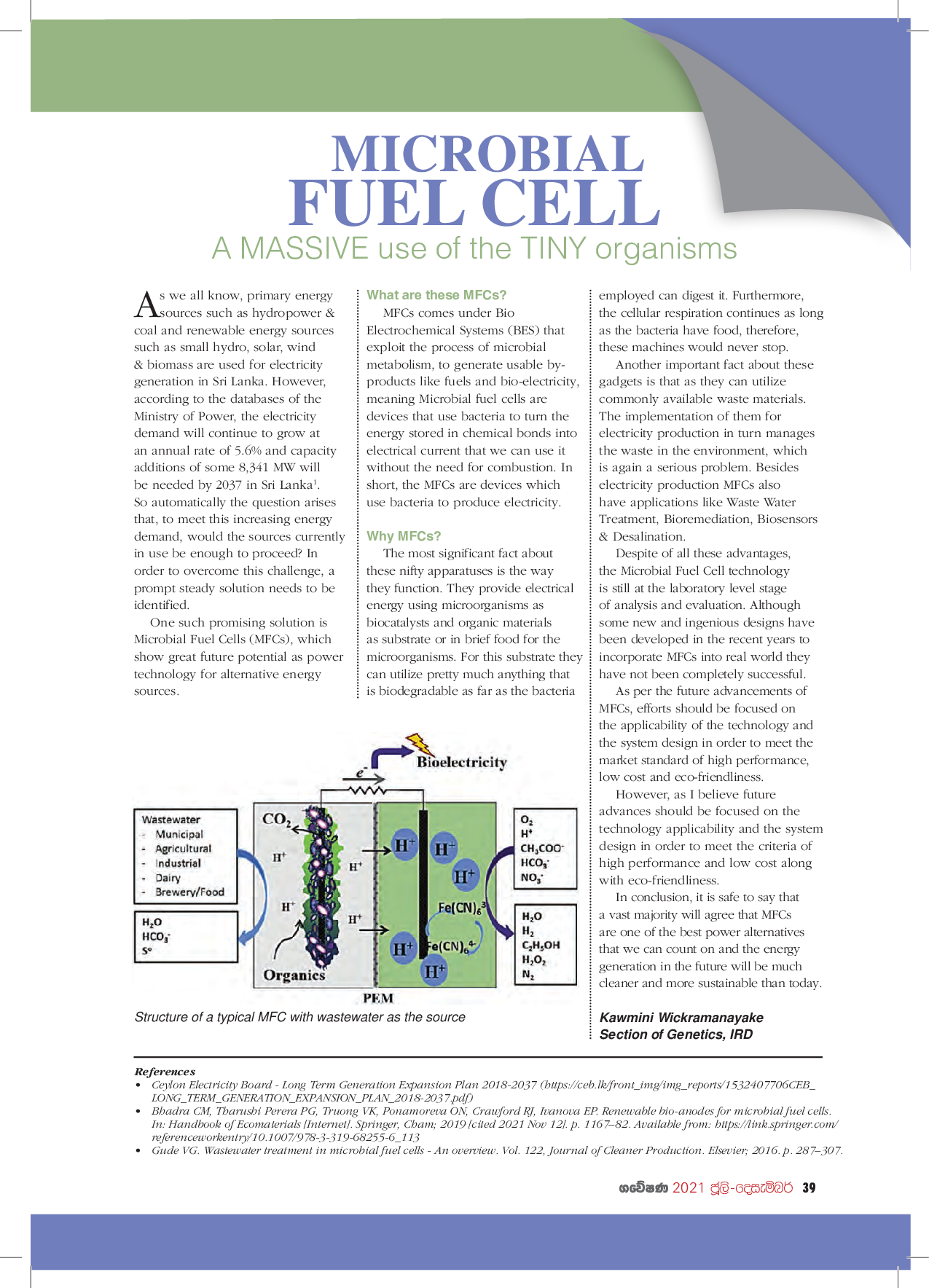As we all know, primary energy sources such as hydropower & coal and renewable energy sources such as small hydro, solar, wind & biomass are used for electricity generation in Sri Lanka. However, according to the databases of the Ministry of Power, the electricity demand will continue to grow at an annual rate of 5.6% and capacity additions of some 8,341 MW will be needed by 2037 in Sri Lanka1. So automatically the question arises that, to meet this increasing energy demand, would the sources currently in use be enough to proceed? In order to overcome this challenge, a prompt steady solution needs to be identified. One such promising solution is Microbial Fuel Cells (MFCs), which show great future potential as power technology for alternative energy sources.
What are these MFCs?
MFCs comes under Bio Electrochemical Systems (BES) that exploit the process of microbial metabolism, to generate usable byproducts like fuels and bio-electricity, meaning Microbial fuel cells are devices that use bacteria to turn the energy stored in chemical bonds into electrical current that we can use it without the need for combustion. In
short, the MFCs are devices which use bacteria to produce electricity.
Why MFCs?
The most significant fact about these nifty apparatuses is the way they function. They provide electrical energy using microorganisms as biocatalysts and organic materials as substrate or in brief food for the microorganisms. For this substrate they can utilize pretty much anything that is biodegradable as far as the bacteria employed can digest it. Furthermore, the cellular respiration continues as long as the bacteria have food, therefore, these machines would never stop. Another important fact about these gadgets is that as they can utilize commonly available waste materials. The implementation of them for electricity production in turn manages the waste in the environment, which is again a serious problem. Besides electricity production MFCs also have applications like Waste Water
Treatment, Bioremediation, Biosensors & Desalination.

Despite of all these advantages, the Microbial Fuel Cell technology is still at the laboratory level stage of analysis and evaluation. Although some new and ingenious designs have been developed in the recent years to incorporate MFCs into real world they have not been completely successful. As per the future advancements of MFCs, efforts should be focused on the applicability of the technology and the system design in order to meet the market standard of high performance, low cost and eco-friendliness. However, as I believe future advances should be focused on the technology applicability and the system design in order to meet the criteria of high performance and low cost along with eco-friendliness. In conclusion, it is safe to say that a vast majority will agree that MFCs are one of the best power alternatives that we can count on and the energy generation in the future will be much cleaner and more sustainable than today.
Kawmini Wickramanayake
Section of Genetics, IRD

